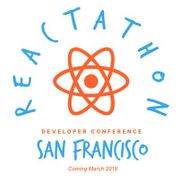Talks
Sep 27, 2018
Three components: that’s all you need to know to start building React applications with GraphQL. In this talk, we'll take a closer look at how to incorporate Apollo's Query, Mutation, and Subscription components to handle all of your React app's data fetching needs. And with that, you'll be hooked on GraphQL.
Sep 21, 2018
Your app is bigger and slower than it needs to be. Without rewriting app code we can squeeze more performance out of your code by tweaking Webpack and Babel. These tools are immensely powerful but it’s a delicate dance to get them to play nice. This talk is full of tips and tricks to get you there.
Sep 14, 2018
Have you ever wondered why good performance around animated transitions on views is so hard to achieve in web projects? Animations and performance are one of the top point of discussion when comparing web application to their native counterparts. I’m going to share my learnings on how to safely kick off route based animations, performance tricks and modern workflows to build reliable transitions for web applications.
- Jeremias Menichelli
Mar 31, 2018
As web developCome join Kyle Mathews, founder of Gatsby, as he talks about modern web performance. You'll learn the tools & techniques you can start using today to make your React sites super fast. We’ll discuss code splitting, "link preload", greedy prefetching, header optimizations, service workers, and more using Gatsby as a case study for these techniques.
Mar 31, 2018
Redux is the most widely-used state management library for React applications, and has spread throughout the Javascript ecosystem. However, the learning curve can be steep for many people. Come join Redux co-maintainer Mark Erikson as we talk about the core concepts of Redux, how to use Redux with React, and how Redux was designed to make Javascript applications predictable.
- Mark Erikson
Mar 31, 2018
GraphQL is a declarative query language that is revolutionizing how we think about the data in our applications — it helps make accessing APIs from both the client and the server an absolute breeze. Come learn the basics of GraphQL and how you can use it today!
- Jon Wong
Mar 31, 2018
You may have heard of CSS in JS, but what alternatives are there for implementing interactive motions in JS? This talk will be a comparison of several approaches from using vanilla Javascript to libraries like Anime.js and Popmotion, as well as ones in React ecosystem like React Transition Group and React Motion.
- Kaylie Kwon
Mar 31, 2018
Many companies use React JS for their website and would like to reuse that code in their mobile apps. This talk will cover identifying the best candidates for shared code, sharing both UI components and UI-less business logic, and using React Native in both greenfield and brownfield apps.
- Erica Cooksey
Mar 31, 2018
A review of how we created a GraphQL backend backed by Postgres. The key challenges faced by real-world apps and our solution approach, specifically around expressive query arguments, access control, schema iteration, sharing auth between multiple API backends. We will also review some quick tips to make the most out of Postgres and reveal some early performance benchmarks. We will end with a demo how you can create complex data models and make intuitive graphql queries from your app without requiring in-depth knowledge of graphql schemas.
- Tanmai Gopal
Mar 31, 2018
React has no standard way to style components. A slew of ideas and frameworks have grown out of the community. But, with so many CSS in JS solutions, how do you know which one to choose? In this talk, I will cover five different ways to style your React projects, and the pros and cons of each approach. From CSS Modules with SASS to Styled Components, you’ll learn how each library works so that you know which one(s) best fits your needs.
- Joe Seifi
Mar 30, 2018
This talk will show how to use Netlify CMS with a Gatsby-based site, to build high-performant and infinitely-scalable sites with git-based content editing, a user friendly UI, and live browser previews - all without a backend.
- Matt Biilmann
